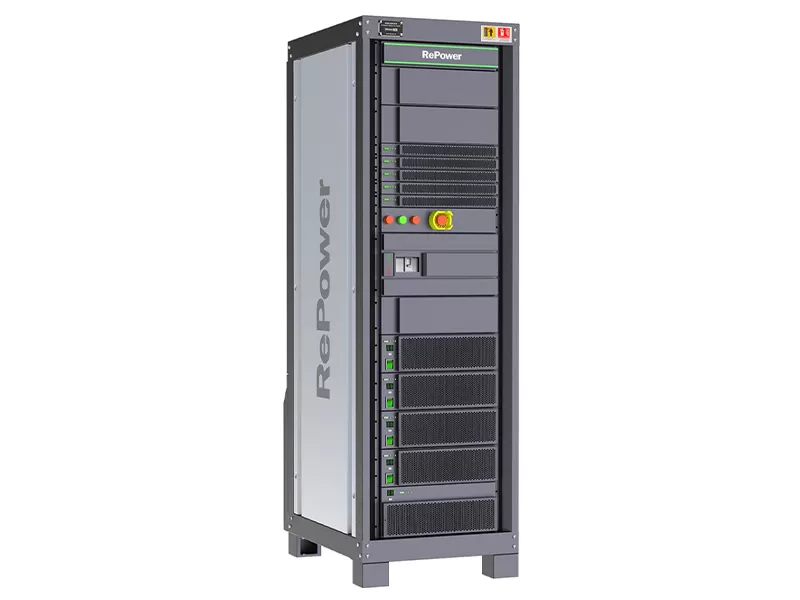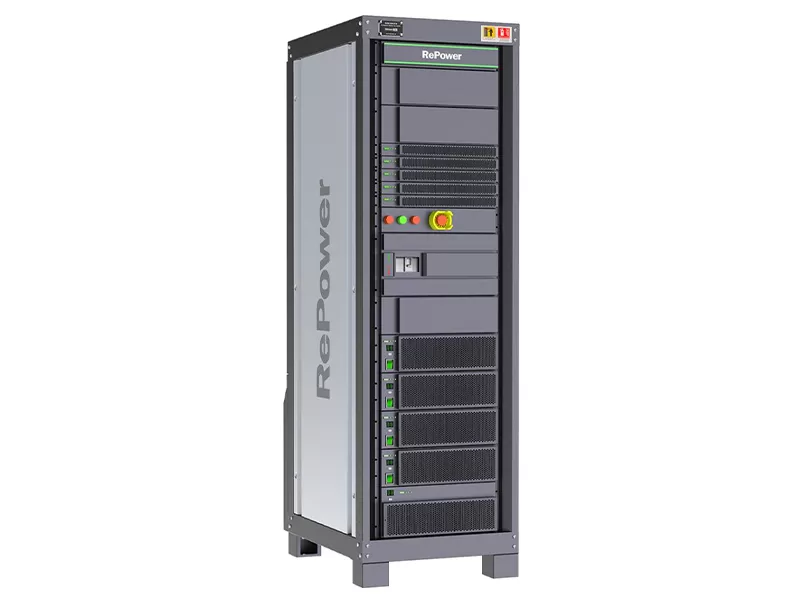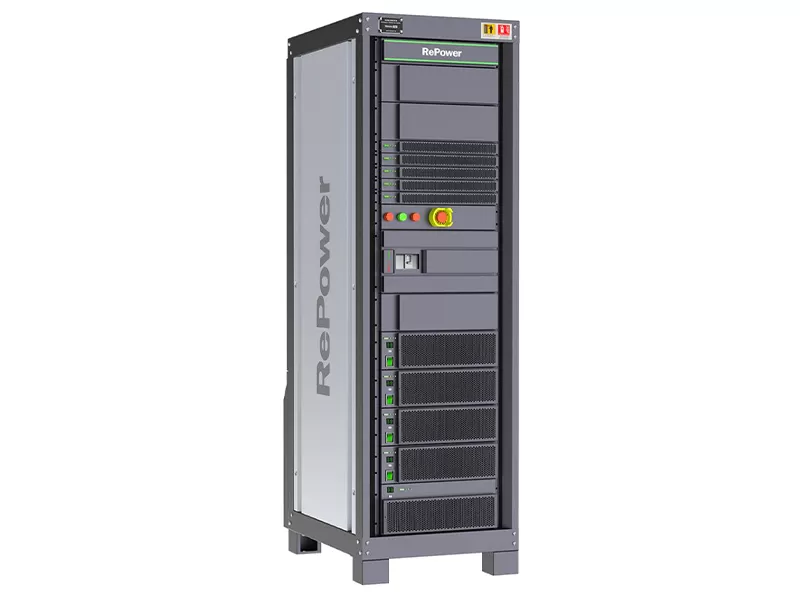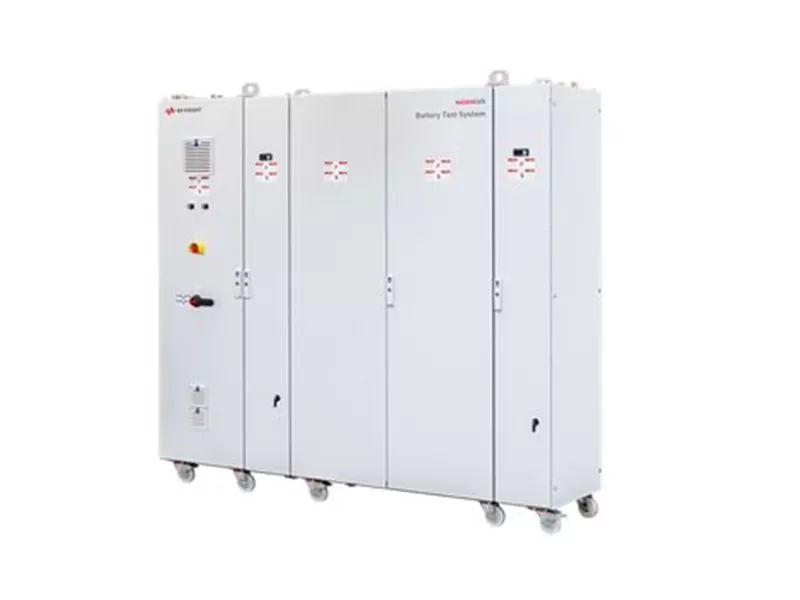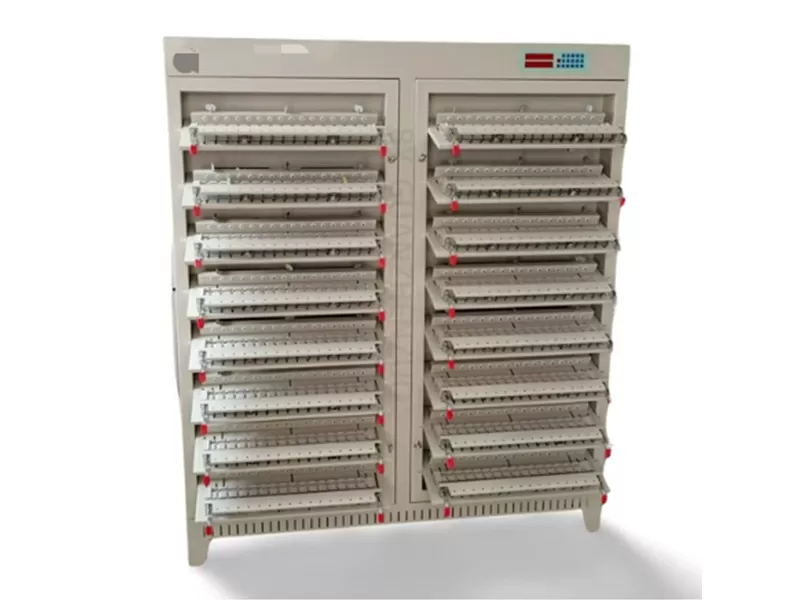1. Module/PACK Compatibility
· Supported Formats:
o Prismatic, pouch, and cylindrical module/PACK configurations.
· Size Range:
o Minimum: 300 × 200 × 50 mm.
o Maximum: 1,500 × 1,000 × 300 mm.
· Weight Capacity: Up to 100 kg per module/PACK.
2. Electrical Testing Parameters
· Voltage Testing:
o Range: 0–1,000 V.
o Accuracy: ±0.05%.
· Current Testing:
o Range: 0–300 A (customizable).
o Accuracy: ±0.1%.
· Capacity Testing:
o Range: 0–500 Ah.
o Accuracy: ±0.1%.
· Internal Resistance Testing:
o Range: 0.01–50 mΩ.
o Accuracy: ±0.05 mΩ.
3. Testing Modes
· Charge/Discharge Profiles:
o Constant Current (CC).
o Constant Voltage (CV).
o Constant Power (CP).
o Dynamic load profiles.
· Cycle Testing: Configurable charge/discharge cycles.
· Temperature Stress Testing: Simulates real-world environmental conditions.
4. Thermal Monitoring and Control
· Temperature Range: 15–60°C (adjustable).
· Temperature Accuracy: ±1°C.
· Thermal Sensors: Independent temperature monitoring for each module/PACK.
· Optional Thermal Chamber: Supports high/low-temperature testing integration.
5. System Capacity
· Channels:
o Standard: 16–32 channels (expandable).
o Independent operation for each channel.
· Testing Throughput: Up to 50 modules or packs per cycle depending on configuration.
6. Data Management
· Real-Time Monitoring: Continuous tracking of key parameters such as voltage, current, resistance, and temperature.
· Data Logging: High-resolution recording for detailed analysis.
· Traceability: Full historical records with unique module/PACK identifiers.
· Reporting: Automated generation of performance test reports.
· Integration: MES/ERP-compatible for streamlined data analysis and decision-making.
7. Control System
· HMI: 10.1-inch touchscreen interface for intuitive operation.
· Control Platform: PLC-based system for stable and precise control.
· Customizable Recipes: Pre-programmed test profiles for different chemistries and applications.
8. Safety Features
· Overcurrent/Overvoltage Protection: Automatically stops testing in abnormal conditions.
· Thermal Alarm System: Alerts for overheating or temperature deviations.
· Emergency Shutdown: Accessible buttons for instant operation termination.
· Fire Suppression System: Optional built-in system for enhanced safety.
9. Mechanical Design
· Dimensions: 2,200 × 1,500 × 2,200 mm (customizable).
· Weight: Approximately 2,800 kg.
· Cooling System: Integrated forced-air cooling for stable operation.
· Cabinet Structure: Modular design for easy operation and maintenance
10. Power Requirements
· Input Voltage: AC 380V ±10%, 50/60 Hz, 3-phase.
· Power Consumption: ≤100 kW
11. Environmental Requirements
· Operating Temperature: 15–35°C.
· Humidity: ≤70% RH (non-condensing).
· Cleanliness: Dust-free environment recommended for optimal performance



